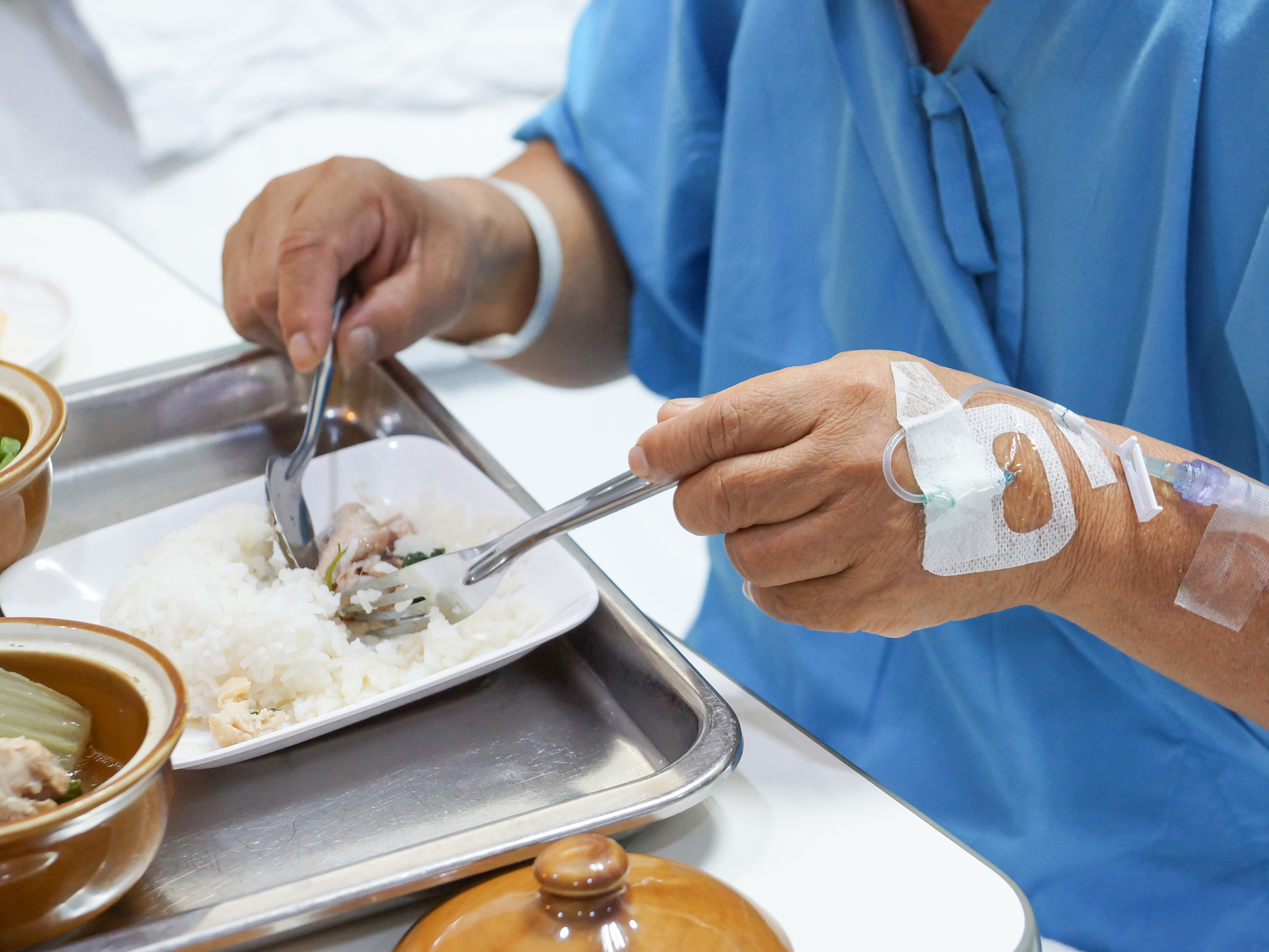Get Easy Health Digest™ in your inbox and don’t miss a thing when you subscribe today. Plus, get the free bonus report, Mother Nature’s Tips, Tricks and Remedies for Cholesterol, Blood Pressure & Blood Sugar as my way of saying welcome to the community!
Why you need to nurse your gut back to health following a hospital stay

Staying in the hospital isn’t fun — the lack of privacy, the noise, the disgusting Jell-O. By the time your stay is over, all you want to do is breathe fresh air, eat an apple (or something else that contains actual nutrients) and pray that you won’t ever have to stay in the hospital again.
Once you’re back home, it’s amazing how quickly you start to leave your hospital experience behind you. You call friends. Eat real food. Cuddle with your pets. Go back to work. But the side effects of a hospital visit stay with you long after you return to business as usual…
Staying in the hospital leaves a mark on your health. And not the obvious mark caused by scars from surgeries or injuries. This mark is impossible to see with the naked eye. This mark is in your microbiome.
3 ways a hospital stay harms your gut health
A study from researchers at the Quadram Institute in the UK shows that even a short hospital stay can wreak havoc on your microbiome.
Researchers investigated microbial health in 24 people who stayed in the hospital due to trauma, heart attacks, cancer, and other emergencies. They took stool samples while these people were either unconscious or sedated. Here’s what they discovered…
Within just three days of being admitted to the intensive care unit, unhealthy pathogens took over patients’ microbiomes. They kicked the good microbes out and made microbial diversity a thing of the past.
The bad guy that took over the guts of hospital patients most often was Enterococcus faecium. These bacteria can move from the gut to other parts of the body, like the lungs, and cause serious infections. It can even end up in the bloodstream, which could kill you.
How does this hostile microbiome takeover happen?
Well, first, you have to remember that anytime you bring a bunch of very sick people together in one place, it becomes a breeding ground for pathogens. In fact, researchers found that a single strain of Enterococcus faecium spread between three people during the study.
When you add antibiotics to the mix, things get even more dicey. Most people in intensive care are on one antibiotic or another, which knocks out the good gut bacteria swiftly and leaves the microbiome open to new (and possibly dangerous) tenants.
The food you’re fed in hospitals and the way you’re fed it (through feeding tubes) could play a role in the microbial decline that takes place too.
But do you know the scariest part about all this?
People who leave the hospital are already on the mend from a serious illness or injury. If they leave with a messed-up microbiome, it makes it harder for them to recover fully. About 80 percent of your immune system is in your gut, after all.
How to help your microbiome bounce back after a hospital stay
Clearly, when you’re in intensive care, the priority is saving your life. So, your microbial health has to take a back seat. But when you get home, you can take action to get your microbiome back in good shape. Start by:
- Cutting out foods that mess with your microbiome more. Sugar, processed food, refined flour, and refined oils are all proven to disrupt microbiome balance. So, take a reprieve from these foods while you get your gut health in order.
- Eating fiber-filled fruits, veggies and whole grains. Fiber feeds the healthy bacteria in your gut. So, getting plenty of fiber from whole foods can help the good guys gain hold of your microbiome again.
- Reaching for fermented foods more often. Fermented foods like yogurt, kombucha, and kefir contain probiotics that can help restore the healthy bacteria in your gut. You could also take a probiotic pill.
- Live a healthy, balanced lifestyle. It’s amazing how much daily habits like exercise, sleep and stress have on your microbiome. So, take good care of yourself if you want a healthy microbiome.
Editor’s note: Are you feeling unusually tired? You may think this is normal aging, but the problem could be your master hormone. When it’s not working, your risk of age-related diseases skyrockets. To reset what many call “the trigger for all disease” and live better, longer, click here to discover The Insulin Factor: How to Repair Your Body’s Master Controller and Conquer Chronic Disease!
Sources:
- Just three days in hospital can change the bacteria in your gut — New Scientist
- Loss of microbial diversity and pathogen domination of the gut microbiota in critically ill patients — Microbial Genomics
- Allergy and the gastrointestinal system — Clinical and Experimental Immunology
- Antibiotics Screwed Up My Gut. Now What? — U.S. News & World Report













